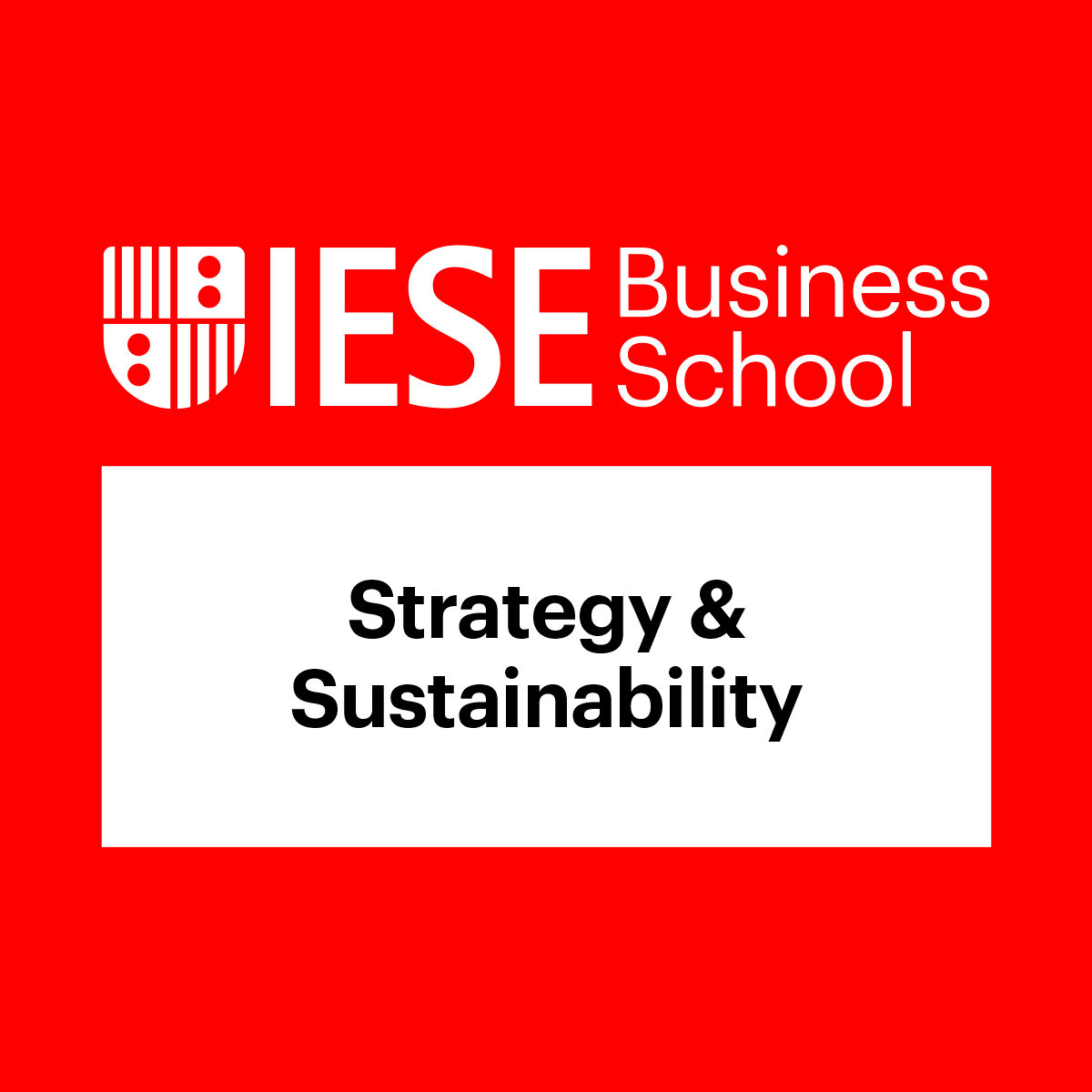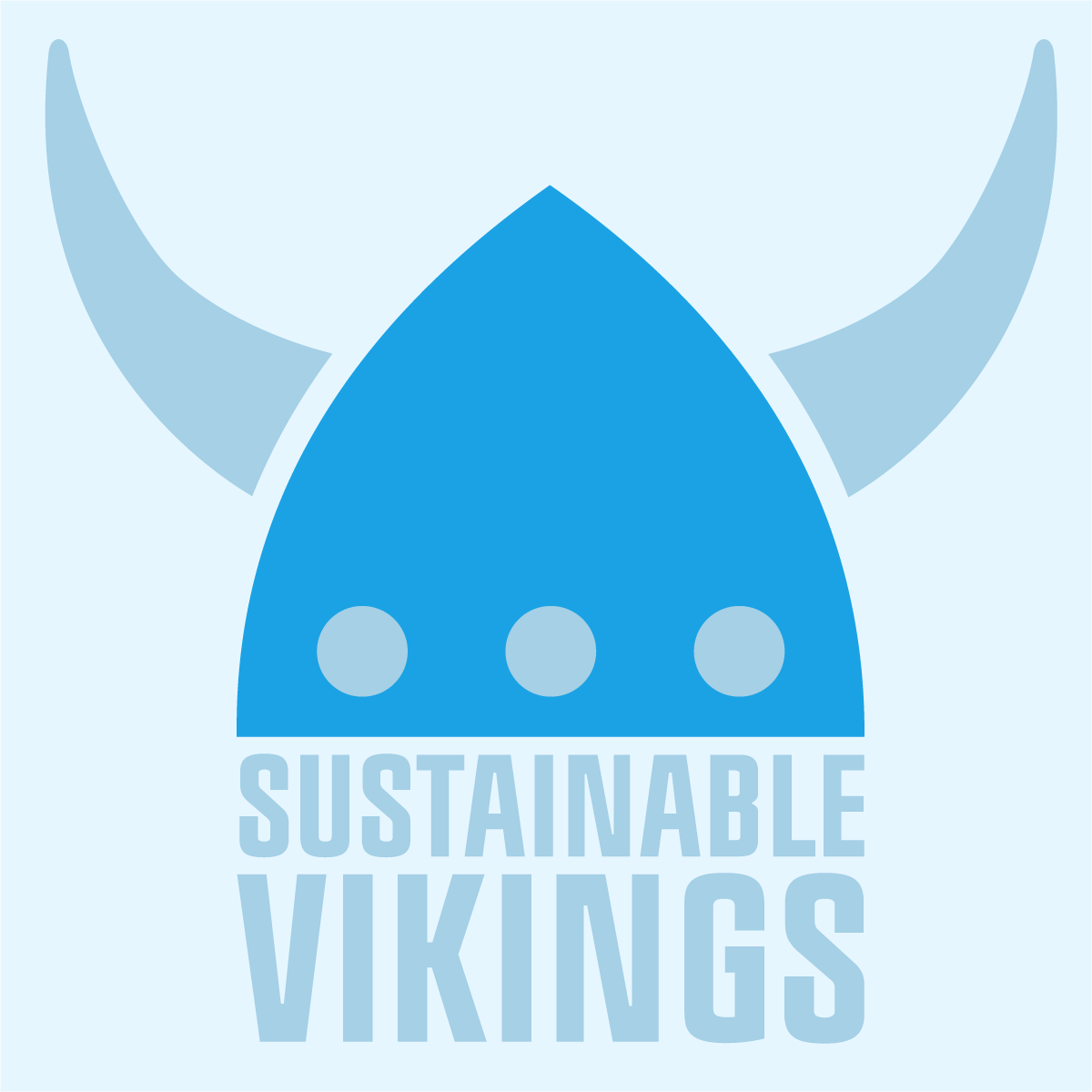Corporate Social Responsibility
vigating the Landscape of Corporate Social Responsibility
Corporate Social Responsibility (CSR) is a business model that guides companies to be socially accountable to themselves, their stakeholders, and the public. By practicing CSR, also known as corporate citizenship, companies become conscious of their impact on various aspects of society, including economic, social, and environmental factors. It is a form of self-regulation where businesses integrate social and environmental concerns into their operations and interactions with stakeholders, moving beyond a sole focus on profits. This commitment often involves striving for a balance between economic, environmental, and social imperatives, a concept sometimes referred to as the "Triple Bottom Line" or the "three P's": profit, people, and planet.
Working in CSR can be engaging and exciting for several reasons. It allows individuals to contribute to a company's positive impact on the world, aligning their professional lives with deeply held ethical values. This can involve developing strategies that address pressing societal challenges, from climate change to social inequality. Furthermore, CSR professionals often find themselves at the intersection of various departments within a company and engaging with a wide array of external stakeholders, making the work dynamic and multifaceted. The field is also continuously evolving, presenting constant learning opportunities as new global challenges and best practices emerge.
Introduction to Corporate Social Responsibility (CSR)
This section will delve into the foundational aspects of Corporate Social Responsibility, exploring its definition, historical development, core principles, and its growing importance in the global business environment. Understanding these elements is crucial for anyone considering a path in CSR, as it provides the necessary context for the multifaceted roles and responsibilities within this field.
Defining Corporate Social Responsibility and Its Scope
Corporate Social Responsibility (CSR) is fundamentally about a business's commitment to operate ethically and contribute to sustainable development by working with employees, their families, the local community, and society at large to improve their quality of life. It's a concept whereby companies integrate social and environmental concerns into their business operations and in their interaction with their stakeholders on a voluntary basis. Essentially, it’s about businesses taking responsibility for their actions and their impact on employees, stakeholders, and communities.
The scope of CSR is broad and can encompass a wide range of activities. These include initiatives related to environmental sustainability, such as reducing carbon footprint and waste; social initiatives, like promoting diversity and inclusion, ensuring fair labor practices, and investing in community development; and ethical considerations, such as transparent corporate governance and anti-corruption measures. Companies often communicate their CSR efforts and impacts through dedicated reports.
Many organizations are guided by the "triple bottom line," which emphasizes measuring social and environmental impact alongside financial profits. This holistic approach means CSR is not just about philanthropy or charitable donations, though these can be components. Instead, it's increasingly viewed as a strategic business management concept that can lead to innovation, improved brand reputation, and enhanced stakeholder relationships.
The Journey of CSR: Historical Context and Evolution
The concept of businesses having a responsibility to society is not entirely new, with roots that can be traced back to early philanthropic activities by industrialists in the late 19th and early 20th centuries. Figures like Andrew Carnegie and John D. Rockefeller championed the idea that the wealthy had a moral duty to contribute to societal betterment. However, the formal articulation and academic exploration of Corporate Social Responsibility began to take shape in the mid-20th century.
A pivotal moment was the publication of Howard Bowen's "Social Responsibilities of the Businessman" in 1953, which is often cited as coining the term CSR and positioning Bowen as the "father of CSR." This work proposed that business leaders have obligations extending beyond mere financial performance. Throughout the 1960s and 1970s, a period marked by growing social and environmental awareness, the scope of CSR expanded. The Committee for Economic Development in 1971 introduced the idea of a "social contract" between businesses and society, suggesting that companies operate with public consent and thus have an obligation to meet societal needs.
The decades that followed saw CSR evolve from primarily discretionary philanthropic acts to a more integrated and strategic business function. The 1980s brought increased focus on ethical labor practices and pollution control, partly due to deregulation which necessitated more corporate self-regulation. By the 1990s and 2000s, global events and agreements, such as Agenda 21 and the Kyoto Protocol, broadened CSR concerns to a global scale, emphasizing environmental sustainability and the impact of multinational corporations. Today, CSR is considered by many as a fundamental aspect of corporate strategy, intertwined with governance, risk management, and long-term value creation.
The Pillars of Responsibility: Economic, Social, and Environmental
The core of Corporate Social Responsibility rests on three fundamental pillars: economic, social, and environmental responsibility. These pillars provide a framework for businesses to operate in a manner that is not only profitable but also ethically sound and sustainable. They represent the multifaceted obligations that companies have towards their various stakeholders and the planet.
Economic responsibility forms the base of CSR. While it might seem counterintuitive in a discussion about social and environmental good, a company must first be profitable to sustain its operations and, by extension, its CSR initiatives. This pillar emphasizes practices like fair trade, ethical sourcing of materials, and ensuring financial transparency. It's about generating profit in a way that is ethical and contributes to the overall economic well-being of the society in which it operates.
Social responsibility encompasses a company's impact on its various stakeholders, including employees, customers, suppliers, and the communities where it operates. This involves ensuring fair labor practices, promoting diversity and inclusion, safeguarding employee health and safety, engaging positively with local communities, and upholding human rights. Philanthropic activities, such as donating to charities or establishing foundations, also fall under this pillar.
Environmental responsibility, often termed environmental stewardship, focuses on minimizing a company's negative impact on the natural world. Key practices include reducing pollution, conserving natural resources, managing waste effectively, increasing energy efficiency, and investing in renewable energy sources. This pillar reflects the growing understanding that the health of the planet is intrinsically linked to the long-term viability of businesses and society.
These courses can help build a foundation in understanding the multifaceted nature of CSR and its core components.
For those interested in further reading, these books offer comprehensive insights into the principles and practices of CSR.
CSR's Expanding Footprint: Global Relevance and Industry Adoption
Corporate Social Responsibility is no longer a niche concept confined to a few progressive companies; it has achieved significant global relevance and widespread industry adoption. Businesses across various sectors and geographies are increasingly recognizing that integrating CSR into their core strategies is not just a matter of ethical obligation but also a driver of long-term value, resilience, and competitive advantage.
The global push for sustainability, underscored by international frameworks like the United Nations Sustainable Development Goals (SDGs), has significantly propelled the adoption of CSR. These goals provide a universal agenda for addressing pressing global challenges, and businesses are seen as crucial partners in achieving them. As a result, companies are aligning their CSR initiatives with the SDGs, focusing on areas where they can have the most meaningful impact, such as climate action, responsible consumption and production, and promoting decent work and economic growth.
Industry adoption varies, with some sectors facing more intense scrutiny and stakeholder pressure than others. For instance, industries with significant environmental footprints, like manufacturing, energy, and extractives, often have robust environmental CSR programs. Consumer-facing industries, such as retail and apparel, are increasingly focused on ethical sourcing and supply chain transparency due to heightened consumer awareness and demand for responsibly made products. Moreover, the rise of Environmental, Social, and Governance (ESG) investing has put further pressure on companies across all sectors to demonstrate strong CSR performance, as investors increasingly use ESG criteria to assess risk and identify sustainable investment opportunities.
The following topics are closely related to the global relevance and adoption of CSR and provide further avenues for exploration.
Ethical Considerations in Corporate Social Responsibility
At its core, Corporate Social Responsibility is deeply intertwined with ethics. This section explores the complex ethical landscape that CSR professionals and organizations must navigate. It examines the delicate balance between generating profits and making a positive societal impact, the challenges of ensuring ethical conduct throughout global supply chains, the critical importance of transparency, and the lessons learned from both ethical triumphs and failures in the corporate world.
The Tightrope Walk: Balancing Profit and Societal Impact
One of the central ethical challenges in Corporate Social Responsibility is navigating the inherent tension between a company's traditional objective of maximizing shareholder profit and its broader responsibility to create a positive societal impact. While some argue, like Milton Friedman famously did, that the primary social responsibility of business is to increase its profits (within legal and ethical bounds), a growing consensus recognizes that long-term business success is inextricably linked to societal well-being and environmental health.
CSR initiatives, by their nature, often involve investments that may not yield immediate financial returns or could even incur short-term costs. For example, investing in cleaner technologies, paying living wages, or ensuring ethical sourcing can be more expensive than conventional practices. This requires a careful balancing act, where companies must justify these investments not just on moral grounds but also by demonstrating their long-term value in terms of enhanced brand reputation, improved employee morale and retention, increased customer loyalty, better risk management, and attracting socially conscious investors.
The concept of "shared value" offers a framework for reconciling these objectives, suggesting that companies can create economic value in a way that also creates value for society by addressing its needs and challenges. This approach moves beyond viewing social impact as a cost and reframes it as an opportunity for innovation and growth. However, making these strategic choices requires strong ethical leadership and a corporate culture that genuinely values societal contributions alongside financial performance.
These courses offer insights into how businesses can strategically approach sustainability and ethical considerations without compromising their core objectives.
This book explores the evolution of sustainability as a business advantage.
Navigating the Maze: Ethical Dilemmas in Supply Chains
Global supply chains, often complex and spanning multiple countries with varying regulations and labor standards, present significant ethical dilemmas for companies committed to CSR. Issues such as child labor, forced labor, unsafe working conditions, low wages, and environmental degradation can be hidden deep within a company's network of suppliers and sub-contractors. Ensuring ethical conduct throughout these extensive networks is a formidable challenge.
Companies face the ethical imperative to not only avoid direct involvement in such practices but also to proactively identify, mitigate, and remediate them within their sphere of influence. This requires robust due diligence processes, including supplier audits, clear codes of conduct, and mechanisms for workers to voice grievances without fear of reprisal. However, audits alone are often insufficient, as suppliers may conceal antrue_conditions or engage in "audit shopping."
Transparency and traceability are becoming increasingly critical. Consumers, investors, and advocacy groups are demanding more information about where and how products are made. Technologies like blockchain are being explored for their potential to enhance supply chain visibility. Furthermore, collaborative initiatives involving multiple stakeholders—including industry peers, NGOs, governments, and international organizations—are often necessary to address systemic issues that individual companies cannot solve alone. The ethical responsibility extends to empowering suppliers, particularly small and medium-sized enterprises, to improve their own social and environmental performance through capacity building and fair purchasing practices.
The following courses delve into ethical decision-making and supply chain sustainability, providing valuable perspectives for navigating these complex issues.
This book provides a critical look at global value chains and their intersection with CSR.
The Clarity Imperative: Transparency and Anti-Greenwashing Measures
Transparency is a cornerstone of credible Corporate Social Responsibility. It involves being open and honest about a company's social and environmental performance, including both successes and shortcomings. Stakeholders, including consumers, investors, employees, and communities, increasingly expect companies to provide clear, accurate, and accessible information about their CSR initiatives and impacts. This allows for informed decision-making and holds companies accountable for their commitments.
A significant ethical challenge related to transparency is "greenwashing." This refers to the practice of misleading consumers and stakeholders regarding a company's environmental practices or the environmental benefits of a product or service. Greenwashing can take many forms, from making vague or unsubstantiated claims to selectively disclosing positive information while obscuring negative impacts. This practice not only deceives stakeholders but also undermines the credibility of genuine CSR efforts across the business landscape and can lead to significant reputational damage if exposed.
To combat greenwashing and foster genuine transparency, robust reporting standards and verification mechanisms are essential. Frameworks like the Global Reporting Initiative (GRI) and standards from the Sustainability Accounting Standards Board (SASB) provide guidelines for comprehensive and comparable CSR reporting. Independent third-party assurance of CSR reports can further enhance credibility. Moreover, a commitment to transparency requires a corporate culture that embraces openness, is willing to admit mistakes, and demonstrates a genuine commitment to continuous improvement in its social and environmental performance. Effective anti-greenwashing measures involve clear communication, data-backed claims, and a willingness to engage in honest dialogue with stakeholders.
These courses provide insights into CSR reporting and communication, crucial for maintaining transparency and avoiding greenwashing.
You may also be interested in this related topic.
Learning from the Past: Case Studies of Ethical Triumphs and Failures
Examining real-world case studies of both ethical successes and failures in Corporate Social Responsibility provides invaluable lessons for current and aspiring CSR professionals. These examples illustrate the tangible consequences of corporate decisions and the profound impact they can have on society, the environment, and a company's own reputation and viability.
Ethical failures often make headlines and serve as cautionary tales. Events like Volkswagen's emissions scandal, where the company deliberately deceived regulators and consumers about the environmental performance of its vehicles, highlight the devastating reputational and financial costs of unethical behavior. Such cases underscore the importance of strong ethical leadership, robust internal controls, and a corporate culture that prioritizes integrity over short-term gains. They also reveal the power of whistleblowers and investigative journalism in exposing corporate misconduct.
Conversely, ethical triumphs showcase companies that have successfully integrated CSR into their core business strategy, often leading to positive outcomes for both the company and society. For example, Patagonia has built a strong brand reputation around its commitment to environmental sustainability, transparent supply chains, and advocacy for environmental causes. Companies that proactively address social or environmental issues, even when it involves short-term costs, can build trust with stakeholders and foster long-term loyalty. These success stories often demonstrate innovation in sustainable practices, a deep understanding of stakeholder needs, and a genuine commitment to making a positive difference.
Studying these diverse cases helps in understanding the complexities of ethical decision-making in a business context, the importance of stakeholder engagement, and the long-term implications of a company's social and environmental footprint. They also provide practical insights into how to develop and implement effective CSR strategies that are both impactful and sustainable.
These courses can provide frameworks and real-world examples to better understand ethical business practices.
This topic explores the broader field of ethical conduct in business.
CSR Implementation Strategies
Moving from theory to practice, this section focuses on the "how-to" of Corporate Social Responsibility. It explores actionable strategies for embedding CSR into the fabric of an organization. Key areas of discussion include integrating CSR into corporate governance structures, developing effective stakeholder engagement frameworks, establishing meaningful metrics for tracking CSR performance (such as ESG criteria), and aligning CSR initiatives with globally recognized frameworks like the UN Sustainable Development Goals.
Weaving CSR into the Corporate DNA: Integration with Governance
For Corporate Social Responsibility to be truly effective, it must be more than a standalone department or a series of ad-hoc initiatives. It needs to be deeply integrated into the company's overall corporate governance structure and decision-making processes. This means that CSR considerations should inform strategic planning, risk management, operational procedures, and corporate culture at all levels of the organization.
Integrating CSR into governance often starts at the top, with the board of directors and senior leadership demonstrating a clear commitment to social and environmental responsibility. This might involve establishing a dedicated board committee for CSR or sustainability, incorporating CSR metrics into executive compensation, and ensuring that the company's mission and values explicitly reflect a commitment to responsible business practices. Clear lines of accountability for CSR performance should be established throughout the organization.
Furthermore, CSR principles should be embedded in corporate policies and codes of conduct, covering areas such as ethical sourcing, human rights, environmental protection, and anti-corruption. Employee training and awareness programs can help foster a culture where every individual understands their role in contributing to the company's CSR objectives. Ultimately, successful integration means that CSR is not viewed as a cost center or a purely philanthropic endeavor, but as an integral part of how the company creates long-term value for all its stakeholders.
These courses offer insights into integrating sustainability and ethical governance into business strategy.
This book explores the relationship between CSR and corporate governance.
This topic is also highly relevant to understanding CSR integration.
Building Bridges: Stakeholder Engagement Frameworks
Effective Corporate Social Responsibility hinges on meaningful engagement with a company's diverse stakeholders. Stakeholders are any individuals or groups who can affect or are affected by an organization's activities, and they include employees, customers, suppliers, investors, local communities, regulatory bodies, and NGOs. Developing robust stakeholder engagement frameworks is crucial for understanding their expectations, addressing their concerns, and building trust.
A systematic approach to stakeholder engagement typically involves identifying key stakeholders, understanding their interests and concerns related to the company's operations and CSR performance, and establishing appropriate channels for communication and dialogue. This can range from regular surveys and feedback mechanisms to more in-depth consultations, partnerships, and collaborative initiatives. The goal is to create a two-way communication process where stakeholders feel heard and the company can gather valuable insights to inform its CSR strategy and decision-making.
Transparency and responsiveness are key to successful stakeholder engagement. Companies should be open about their CSR objectives, performance, and challenges, and be willing to address difficult questions. Engaging stakeholders not only helps in identifying material CSR issues but can also lead to co-creation of solutions and foster a sense of shared ownership of CSR goals. For instance, collaborating with local communities on development projects or partnering with NGOs on environmental conservation efforts can lead to more impactful and sustainable outcomes.
The following courses can help in developing skills for engaging with diverse stakeholders effectively.
This book offers practical guidance on working with stakeholders for social opportunity.
Understanding this topic is key to successful CSR implementation.
Measuring What Matters: Metrics for Tracking CSR Performance (e.g., ESG Criteria)
To manage Corporate Social Responsibility effectively and demonstrate its impact, companies need robust metrics for tracking performance. "What gets measured gets managed" is a well-known adage that certainly applies to CSR. Increasingly, Environmental, Social, and Governance (ESG) criteria are becoming the standard framework for assessing a company's sustainability and ethical impact.
Environmental criteria assess how a company performs as a steward of the natural environment. This can include metrics related to energy consumption, greenhouse gas emissions, water usage, waste management, pollution control, and biodiversity impact. Social criteria examine how a company manages relationships with its employees, suppliers, customers, and the communities where it operates. Metrics in this category might cover labor practices, health and safety, diversity and inclusion, employee engagement, customer satisfaction, data privacy, and community investment. Governance criteria deal with a company's leadership, executive pay, audits, internal controls, and shareholder rights. This includes factors like board diversity, transparency in financial reporting, anti-corruption policies, and ethical business conduct.
Tracking these metrics allows companies to set baselines, establish targets for improvement, and monitor progress over time. This data is crucial for internal decision-making, identifying areas of risk and opportunity, and allocating resources effectively. Furthermore, ESG performance data is increasingly demanded by investors, lenders, customers, and other stakeholders who use it to evaluate a company's long-term sustainability and resilience. Various reporting frameworks and rating agencies exist to help standardize ESG data and make it comparable across companies and industries.
These courses provide an understanding of ESG criteria and their application in business.
This book delves into how to make sustainability efforts measurable and effective.
Going Global with Purpose: Aligning CSR with UN Sustainable Development Goals (SDGs)
The United Nations Sustainable Development Goals (SDGs) offer a powerful global framework for companies to align their Corporate Social Responsibility initiatives with broader societal objectives. Adopted by all UN Member States in 2015, the 17 SDGs provide a shared blueprint for peace and prosperity for people and the planet, now and into the future, with a target achievement date of 2030. They cover a wide range of interconnected issues, including poverty, hunger, health, education, gender equality, clean water and sanitation, affordable and clean energy, decent work and economic growth, industry, innovation and infrastructure, reduced inequalities, sustainable cities and communities, responsible consumption and production, climate action, life below water, life on land, peace, justice and strong institutions, and partnerships for the goals.
Businesses have a critical role to play in achieving the SDGs. By aligning their CSR strategies with relevant SDGs, companies can contribute to global efforts while also identifying new business opportunities, enhancing brand reputation, attracting talent, and strengthening stakeholder relationships. This alignment involves understanding which SDGs are most relevant to a company's operations, value chain, and areas of influence. Companies can then set specific, measurable, achievable, relevant, and time-bound (SMART) targets that contribute to these global goals.
Many corporations are now mapping their CSR activities to the SDGs and reporting on their contributions. This not only demonstrates a commitment to global sustainability but also helps in communicating the company's purpose and impact in a universally understood language. The UN Global Compact, a voluntary initiative, encourages businesses worldwide to adopt sustainable and socially responsible policies, and to report on their implementation, providing a platform for companies to advance the SDGs. According to the Business and Sustainable Development Commission, achieving the SDGs could unlock at least $12 trillion in market opportunities in areas like food and agriculture, cities, energy and materials, and health and well-being.
These courses focus on the SDGs and how businesses can integrate them into their strategies.
This book discusses the link between CSR and international development, which often aligns with SDG themes.
Global Trends in Corporate Social Responsibility
The field of Corporate Social Responsibility is dynamic, constantly shaped by evolving societal expectations, environmental challenges, technological advancements, and geopolitical shifts. This section examines key global trends that are influencing how CSR is understood and practiced. We will explore regional variations in CSR priorities, the profound impact of climate change on corporate agendas, the growing emphasis on social equity and Diversity, Equity, and Inclusion (DEI) initiatives, and the transformative role of technology in scaling CSR efforts.
A World of Difference: Regional Variations in CSR Priorities
While the fundamental principles of Corporate Social Responsibility are gaining universal traction, the specific priorities and approaches to CSR can vary significantly across different regions and countries. These variations are often influenced by local cultural norms, socio-economic conditions, regulatory environments, and the maturity of civil society.
For example, in many European Union countries, there is a strong emphasis on environmental sustainability, circular economy models, and comprehensive social welfare, often backed by stringent regulations and detailed reporting requirements. Companies in these regions may prioritize climate action, resource efficiency, and robust labor protections. In contrast, CSR in some emerging markets might place a greater emphasis on community development, poverty alleviation, access to education and healthcare, and basic infrastructure development, reflecting pressing local needs. Philanthropic initiatives and direct community investment can be more prominent in these contexts.
In North America, particularly the United States, CSR has traditionally been more market-driven and voluntary, though regulatory pressures, especially at the state level (e.g., California's climate disclosure rules), and investor demands for ESG performance are increasing. Issues like diversity and inclusion, ethical supply chains, and corporate governance often feature prominently. Understanding these regional nuances is crucial for multinational corporations seeking to implement globally consistent yet locally relevant CSR strategies. It requires sensitivity to local contexts and a willingness to adapt approaches to meet diverse stakeholder expectations.
These courses offer perspectives on global sustainability and business ethics, which can inform an understanding of regional CSR differences.
This book provides insights into CSR practices in specific economic contexts.
The Climate Imperative: Impact of Climate Change on CSR Agendas
Climate change has emerged as one of the most pressing global challenges, profoundly reshaping Corporate Social Responsibility agendas worldwide. The scientific consensus on the urgency of climate action, coupled with increasing extreme weather events and growing public concern, has put immense pressure on businesses to address their carbon footprint and contribute to climate solutions.
For many companies, particularly those in high-emission sectors, climate action is no longer a peripheral CSR activity but a central strategic imperative. This involves setting ambitious targets for reducing greenhouse gas emissions (often aligned with frameworks like the Science Based Targets initiative), investing in renewable energy, improving energy efficiency, and redesigning products and processes for lower environmental impact. The concept of "net-zero" emissions has gained significant traction, with many corporations committing to achieving it by mid-century or sooner.
Beyond mitigation, businesses are also increasingly focusing on climate adaptation and resilience, recognizing that the impacts of climate change are already being felt. This includes assessing climate-related risks to their operations, supply chains, and communities, and developing strategies to adapt to these changes. Furthermore, investors are playing a significant role by demanding greater disclosure of climate-related financial risks and opportunities, following frameworks like the Task Force on Climate-related Financial Disclosures (TCFD). The U.S. Securities and Exchange Commission (SEC) has also moved towards requiring more standardized climate-related disclosures from public companies, signaling a shift towards greater regulatory oversight.
These courses address climate change from a business and sustainability perspective.
This topic is central to modern CSR practices.
Championing Fairness: Rise of Social Equity and DEI Initiatives
In recent years, there has been a significant and growing emphasis on social equity, Diversity, Equity, and Inclusion (DEI) within Corporate Social Responsibility frameworks. Heightened global awareness of systemic inequalities, fueled by social movements and public discourse, has prompted companies to critically examine their own roles in perpetuating or addressing these issues. CSR is increasingly seen as a vehicle for promoting a fairer and more inclusive society.
DEI initiatives within organizations aim to create workplaces where all employees, regardless of their race, ethnicity, gender, sexual orientation, disability, or other aspects of identity, feel valued, respected, and have equal opportunities for advancement. This involves efforts to recruit and retain diverse talent, ensure equitable pay and promotion practices, foster inclusive leadership, and create a culture of belonging. Many companies are now setting measurable DEI goals and publicly reporting on their progress.
Beyond internal workforce considerations, CSR strategies are also addressing broader social equity issues in communities and supply chains. This can include supporting minority-owned businesses, investing in underserved communities, advocating for human rights, and ensuring that products and services are accessible and beneficial to diverse populations. The "S" in ESG (Environmental, Social, and Governance) is gaining prominence, with investors and other stakeholders paying closer attention to how companies are managing their social impacts and contributing to a more just and equitable world. As noted by Deloitte, a significant percentage of younger generations (Millennials and Gen Z) have reportedly rejected job assignments or employers based on personal ethics, underscoring the importance of these initiatives for talent attraction and retention.
The following courses explore social impact and ethical considerations in business.
This topic is directly relevant to the social pillar of CSR.
Leveraging Innovation: Technology's Role in Scaling CSR Efforts
Technology is playing an increasingly vital role in enabling companies to scale their Corporate Social Responsibility efforts and enhance their impact. From data analytics and artificial intelligence (AI) to blockchain and the Internet of Things (IoT), technological innovations are providing new tools and platforms for businesses to address complex social and environmental challenges more effectively and efficiently.
Data analytics and AI can help companies better understand their environmental footprint, identify inefficiencies in resource use, and optimize supply chains for sustainability. For instance, AI algorithms can analyze vast datasets to predict and mitigate environmental risks or to personalize employee well-being programs. IoT sensors can monitor energy consumption in real-time, track emissions, or ensure compliance with safety standards in factories. These technologies empower businesses with actionable insights for more informed CSR decision-making. According to TECHNIA, technologies like Product Lifecycle Management (PLM) and virtual twin systems are pivotal in embedding sustainability into design and development, enabling companies to adopt circular economy principles and assess lifecycle impacts.
Blockchain technology offers potential for enhancing transparency and traceability in supply chains, helping to combat issues like unethical labor practices or the sourcing of conflict minerals. Digital platforms and mobile applications are facilitating wider stakeholder engagement, enabling companies to connect with employees, customers, and communities on CSR initiatives, gather feedback, and promote sustainable behaviors. Furthermore, technology is crucial for scaling solutions, whether it's providing access to education in remote areas through online learning platforms or using mobile banking to promote financial inclusion.
These courses touch upon innovation and strategic approaches that can be enhanced by technology in a CSR context.
This book discusses the intersection of CSR, entrepreneurship, and innovation.
Exploring this topic can provide further insight into how innovation drives CSR.
Career Opportunities in Corporate Social Responsibility
As Corporate Social Responsibility gains prominence, a growing number of career opportunities are emerging for individuals passionate about making a positive impact through business. This section provides an overview of the CSR career landscape, including key roles, essential skills, common entry points, and potential career progression pathways. Whether you are a student exploring options, a professional considering a career change, or an HR specialist seeking to understand this field, this information aims to provide clarity and guidance.
Roles in the CSR Ecosystem: Managers, Consultants, and Analysts
The field of Corporate Social Responsibility encompasses a variety of roles, each contributing to the development, implementation, and evaluation of a company's social and environmental initiatives. Some of the key roles include CSR Managers, Sustainability Consultants, and ESG Analysts.
CSR Managers are typically employed directly by companies to oversee the organization's CSR strategy and programs. Their responsibilities can include developing CSR policies, managing stakeholder engagement, implementing community investment projects, overseeing sustainability reporting, and ensuring compliance with relevant ethical and environmental standards. They often work across different departments to integrate CSR into various business functions. The OpenCourser Career Development section can provide additional resources for those aspiring to such roles.
Sustainability Consultants work with multiple organizations, providing expert advice and support on a wide range of CSR and sustainability issues. They might help companies develop sustainability strategies, conduct environmental or social impact assessments, implement ESG reporting frameworks, or navigate complex regulatory landscapes. Consulting offers a chance to work with diverse clients and tackle varied challenges.
ESG Analysts specialize in evaluating companies based on their Environmental, Social, and Governance performance. They are often employed by investment firms, rating agencies, or financial institutions to identify ESG risks and opportunities, inform investment decisions, and engage with companies on their sustainability practices. This role requires strong analytical skills and a deep understanding of ESG frameworks and data.
These career paths represent some of the most common roles in the CSR field.
Essential Toolkit: Skills for CSR Professionals
A career in Corporate Social Responsibility demands a unique blend of hard and soft skills. Professionals in this field need to be adept at understanding complex social and environmental issues, developing strategic solutions, and engaging effectively with a wide range of stakeholders. Strong communication and storytelling skills are particularly valuable for articulating a company's CSR vision and impact.
Key skills often required include:
- Data Analysis and Reporting: The ability to collect, analyze, and interpret CSR-related data (including ESG metrics) is crucial for measuring performance, identifying trends, and communicating impact. Familiarity with reporting frameworks like GRI or SASB is often beneficial.
- Stakeholder Management and Communication: CSR professionals must be skilled at engaging with diverse stakeholders, including employees, customers, investors, communities, and NGOs. This requires excellent interpersonal, negotiation, and presentation skills.
- Project Management: Implementing CSR initiatives often involves managing complex projects with multiple timelines, budgets, and stakeholders. Strong organizational and project management capabilities are therefore essential.
- Strategic Thinking: The ability to think strategically and align CSR initiatives with overall business objectives is highly valued. This includes understanding how CSR can create shared value and contribute to long-term sustainability.
- Knowledge of Sustainability and Ethical Issues: A solid understanding of environmental science, social equity issues, human rights, corporate governance, and relevant regulations is fundamental.
- Problem-Solving and Innovation: CSR often involves tackling complex challenges that require creative and innovative solutions.
Building these skills can be achieved through formal education, professional development courses, and practical experience. Many online platforms offer courses focused on specific CSR competencies. For instance, exploring Sustainability courses on OpenCourser can provide foundational knowledge in environmental and social governance.
Breaking In: Entry Points and Pathways
Entering the field of Corporate Social Responsibility can seem challenging, as dedicated entry-level CSR roles are not always abundant. However, there are several pathways and strategies that aspiring CSR professionals can pursue. It's often a field where experience in related areas can be a significant asset.
One common entry point is to gain experience in a related department within a company that has a strong CSR commitment. For example, working in communications, marketing, human resources, supply chain management, or environmental health and safety can provide valuable skills and exposure to CSR-related projects. Over time, individuals can then transition into more specialized CSR roles within the organization or leverage that experience to seek CSR positions elsewhere.
Another pathway is through internships or volunteer work with non-profit organizations, NGOs, or social enterprises that focus on sustainability or social impact. This can provide hands-on experience, build a professional network, and demonstrate a commitment to the field. Cross-departmental projects within a current role that have a CSR component can also serve as a stepping stone.
For those with relevant academic backgrounds, such as degrees in environmental science, sustainability studies, business ethics, or social sciences, entry-level analyst or coordinator roles may be available, particularly in larger corporations or consulting firms. Networking, continuous learning, and staying updated on industry trends are crucial for anyone looking to break into and advance in the CSR field.
These courses can provide foundational knowledge that is often a prerequisite for entry-level positions or for transitioning into CSR.
Climbing the Ladder: Salary Benchmarks and Career Progression
Career progression in Corporate Social Responsibility can be rewarding, offering opportunities to take on increasing levels of responsibility and influence. While salary benchmarks can vary significantly based on factors such as industry, company size, geographic location, years of experience, and specific role, the demand for skilled CSR professionals is generally growing, which can positively impact earning potential.
Entry-level positions, such as CSR Coordinator or Sustainability Analyst, might involve supporting senior staff, collecting data, assisting with report writing, and coordinating specific projects. With experience, professionals can advance to roles like CSR Manager or Sustainability Manager, where they take on more strategic responsibilities, lead teams, and manage budgets. Further progression can lead to senior leadership positions such as Director of CSR/Sustainability, Vice President of Sustainability, or even Chief Sustainability Officer (CSO) in some organizations. These senior roles involve shaping the company's overall CSR vision, integrating it into core business strategy, and representing the company on sustainability matters to external stakeholders, including investors and policymakers.
The field also offers opportunities for specialization. For example, one might focus on environmental compliance, ethical supply chains, community investment, ESG reporting, or impact investing. It's also possible to transition between in-house corporate roles, consulting positions, and roles in the non-profit or public sector. Continuous professional development, staying abreast of evolving regulations and best practices, and building a strong professional network are key to advancing in this dynamic field. According to the U.S. Bureau of Labor Statistics, while not a direct measure for all CSR roles, related fields like social work (which sometimes intersect with corporate social work) show projected growth, indicating a broader trend of increasing societal focus on social impact.
For individuals looking to advance, these careers represent potential progression paths or related areas of expertise.
Academic Pathways for CSR Education
For those seeking to build a strong foundation of knowledge and credentials in Corporate Social Responsibility, formal academic pathways offer structured learning and recognized qualifications. This section explores the types of educational programs available, from undergraduate and graduate degrees to specialized certifications. It also highlights the interdisciplinary nature of CSR education and the growing opportunities for research in this impactful field.
Degrees of Impact: Undergraduate and Graduate Programs in Sustainability
A growing number of universities worldwide offer undergraduate and graduate programs specifically focused on sustainability, corporate social responsibility, and related fields. These programs are designed to equip students with the theoretical knowledge and practical skills needed to address complex social and environmental challenges in a business context.
Undergraduate programs, such as a Bachelor of Science or Arts in Sustainability Studies, Environmental Management, or Business Ethics, can provide a broad introduction to CSR principles. These programs often cover topics like environmental science, sociology, economics, policy, and ethics, laying a multidisciplinary groundwork. Students may learn about the history of CSR, key frameworks, stakeholder theory, and methods for assessing social and environmental impact.
Graduate programs, including Master's degrees (e.g., MBA with a specialization in Sustainability, Master of Science in Sustainable Management, Master of Arts in Social Responsibility) and doctoral programs, offer more specialized and in-depth study. These programs often cater to individuals seeking leadership roles in CSR or careers in academia and research. Curricula may include advanced courses on ESG investing, circular economy, climate change strategy, sustainable supply chain management, and CSR reporting. Many programs also incorporate experiential learning opportunities, such as internships, consulting projects with real-world clients, or research theses.
When considering academic programs, it's beneficial to look for those that offer a strong blend of theoretical rigor and practical application, and that are taught by faculty with expertise in the field. Exploring options through OpenCourser's browse feature can help identify relevant areas of study and related online courses that might complement a degree program.
Beyond Silos: Interdisciplinary Approaches in CSR Education
Corporate Social Responsibility is inherently interdisciplinary, drawing on insights and methodologies from a wide range of academic fields. Effective CSR education, therefore, typically adopts an interdisciplinary approach, breaking down traditional academic silos to provide a more holistic understanding of the complex issues involved.
A comprehensive CSR curriculum often integrates perspectives from:
- Business and Management: Covering topics like strategic management, marketing, finance, operations, and organizational behavior, all viewed through a sustainability lens. This helps students understand how to integrate CSR into core business functions.
- Environmental Science: Providing knowledge about climate change, ecology, resource management, pollution control, and environmental impact assessment.
- Social Sciences: Incorporating sociology, anthropology, political science, and development studies to understand social dynamics, inequality, community development, and human rights.
- Ethics and Philosophy: Exploring ethical theories, corporate ethics, and the moral responsibilities of businesses.
- Law and Public Policy: Covering environmental regulations, labor laws, human rights law, and the role of government in promoting CSR.
- Communication Studies: Developing skills in CSR reporting, stakeholder communication, and public relations.
This interdisciplinary nature allows students to develop a multifaceted understanding of CSR challenges and to approach problem-solving from diverse perspectives. It prepares them to work effectively with professionals from different backgrounds and to navigate the complex interplay of economic, social, and environmental factors in real-world situations. Many universities foster this approach through cross-departmental collaborations, joint degree programs, or research centers focused on sustainability and social impact.
These courses demonstrate the interdisciplinary nature of CSR, touching upon business, ethics, and social innovation.
Exploring New Frontiers: Research Opportunities in CSR Impact Assessment
The field of Corporate Social Responsibility is continually evolving, and with this evolution comes a growing need for rigorous research, particularly in the area of CSR impact assessment. Academic institutions play a vital role in advancing our understanding of how CSR initiatives translate into tangible social, environmental, and economic outcomes. This creates numerous research opportunities for students and scholars interested in contributing to the evidence base for effective CSR.
Research in CSR impact assessment seeks to answer critical questions such as: What are the most effective ways to measure the social and environmental impact of corporate activities? How do specific CSR programs affect stakeholder well-being, community development, or environmental quality? What is the causal relationship between CSR performance and financial performance? How can companies better integrate impact assessment into their strategic decision-making processes?
Methodologies for CSR impact assessment can be diverse, ranging from quantitative approaches (e.g., econometric analysis of ESG data, life cycle assessments, social return on investment (SROI) calculations) to qualitative methods (e.g., case studies, stakeholder interviews, participatory action research). There is a growing demand for research that is not only academically rigorous but also practically relevant, providing actionable insights for businesses, policymakers, and civil society organizations. Doctoral programs and research-focused Master's degrees often provide opportunities for students to engage in cutting-edge research in this area, contributing to the development of new frameworks, tools, and best practices for CSR.
The following courses touch upon assessing and strategizing for impact, which are core to CSR research.
Seal of Approval: Certifications (e.g., GRI, SASB)
In addition to academic degrees, professional certifications can provide valuable credentials for individuals working or aspiring to work in Corporate Social Responsibility. These certifications often focus on specific areas of expertise, such as sustainability reporting, ESG analysis, or ethical auditing, and demonstrate a recognized level of competence and knowledge.
Several organizations offer well-regarded certifications in the CSR and sustainability space. For example:
- Global Reporting Initiative (GRI): While GRI itself doesn't offer a broad "CSR certification," it provides comprehensive standards for sustainability reporting that are globally recognized. Professionals can become proficient in applying GRI Standards through various training programs and demonstrate their expertise in helping organizations report on their economic, environmental, and social impacts.
- Sustainability Accounting Standards Board (SASB): SASB, now part of the IFRS Foundation, develops industry-specific sustainability disclosure standards. The FSA Credential (Fundamentals of Sustainability Accounting) is offered for professionals who wish to demonstrate their understanding of the link between sustainability information and financial performance.
- Other Certifications: Various other certifications exist, focusing on areas like ESG investing (e.g., CFA Institute's Certificate in ESG Investing), ethical auditing (e.g., certifications for social auditors), or specialized environmental management systems (e.g., LEED credentials for green building).
These certifications can be particularly beneficial for professionals looking to specialize in certain aspects of CSR, enhance their credibility, and stay current with evolving standards and best practices. They often require passing an examination and may have experience or educational prerequisites. For those new to the field, certifications can also be a way to gain focused knowledge and signal a commitment to a career in CSR. Many professionals pursue certifications to complement their existing degrees or work experience.
This course specifically prepares for a well-known ESG certification.
This book provides a guide to CSR that aligns with the knowledge expected in many certification programs.
Online Learning and CSR Skill Development
The rise of online learning has democratized access to education and skill development in countless fields, and Corporate Social Responsibility is no exception. For professionals seeking to upskill, career switchers looking to enter the CSR domain, or self-learners passionate about sustainability, online platforms offer a flexible and accessible way to acquire relevant knowledge and competencies. This section explores how online courses, micro-credentials, and self-driven projects can contribute to building a career in CSR.
Byte-Sized Learning: Micro-credentials in Sustainability Reporting
Micro-credentials, such as online certificates or digital badges focused on specific skills, are becoming increasingly popular for professionals looking to gain targeted expertise in areas like sustainability reporting. As companies face growing pressure to disclose their Environmental, Social, and Governance (ESG) performance, the demand for individuals skilled in collecting, analyzing, and reporting this information is on the rise.
Online platforms offer a variety of short courses and specialization programs that cover the intricacies of sustainability reporting frameworks such as the Global Reporting Initiative (GRI), the Sustainability Accounting Standards Board (SASB), and the recommendations of the Task Force on Climate-related Financial Disclosures (TCFD). These programs can help learners understand how to identify material ESG issues, collect relevant data, prepare sustainability reports, and communicate performance to stakeholders effectively.
The advantage of micro-credentials lies in their flexibility and focused nature. They allow learners to acquire specific, in-demand skills without committing to a full degree program. For individuals already working in finance, accounting, communications, or environmental management, these credentials can be a valuable addition to their skill set, enabling them to take on new responsibilities related to CSR and sustainability reporting within their organizations. OpenCourser features a wide array of courses, and its "Save to list" feature allows learners to curate a personalized learning path by shortlisting courses that align with their career goals in sustainability reporting. Further, the OpenCourser Learner's Guide offers articles on how to best leverage online courses and certificates for career advancement.
These courses offer focused learning on CSR reporting and related strategic elements.
MOOCs and More: CSR Strategy and Ethical Leadership Online
Massive Open Online Courses (MOOCs) and other online learning platforms provide a wealth of opportunities for individuals to deepen their understanding of CSR strategy and ethical leadership. These courses, often offered by renowned universities and industry experts, cover a broad spectrum of topics relevant to developing and implementing effective and ethical CSR initiatives.
Courses on CSR strategy typically explore how companies can integrate social and environmental considerations into their core business objectives, identify material issues, engage with stakeholders, and measure the impact of their initiatives. They may cover frameworks for developing CSR strategies, case studies of successful (and unsuccessful) approaches, and methods for aligning CSR with long-term value creation. Many MOOCs are self-paced, allowing learners to study at their convenience. For instance, browsing Business courses on OpenCourser can reveal numerous options related to strategy and leadership with a sustainability focus.
Ethical leadership is a critical component of successful CSR. Online courses in this area often delve into ethical decision-making frameworks, the role of values in leadership, creating an ethical corporate culture, and navigating complex ethical dilemmas. They can help aspiring and current leaders develop the moral compass and skills needed to champion responsible business practices within their organizations. Many of these courses incorporate interactive elements, peer discussions, and practical exercises to enhance the learning experience.
The following MOOCs and online courses focus on CSR strategy and ethical leadership principles.
DIY Impact: Tools for Self-Driven Projects (e.g., Carbon Footprint Calculators)
Beyond formal online courses, aspiring CSR professionals can engage in self-driven projects to build practical skills and demonstrate their commitment to the field. Numerous online tools and resources are available that can facilitate such projects, allowing individuals to apply theoretical knowledge to real-world scenarios.
One common self-driven project is conducting a carbon footprint assessment. Many free online carbon footprint calculators are available for individuals, households, or even small businesses. Using these tools, one can learn about the different sources of greenhouse gas emissions, methods for data collection, and strategies for emission reduction. This hands-on experience can be valuable for understanding a key aspect of environmental sustainability.
Other self-driven projects could involve researching and analyzing the CSR reports of several companies in a specific industry, identifying best practices and areas for improvement. One could also develop a mock CSR strategy for a hypothetical company or a local organization, outlining key objectives, initiatives, and performance indicators. Engaging with local community groups on sustainability projects, even on a volunteer basis, can also provide practical experience. These types of projects not only build skills but also provide tangible examples of one's interest and capabilities to showcase to potential employers.
Bridging the Gap: Blending Online Courses with Hands-On Experience
While online courses provide valuable knowledge and theoretical understanding, combining this learning with hands-on experience is often the most effective way to prepare for a career in Corporate Social Responsibility. This blended approach allows individuals to apply what they've learned in a practical context, develop critical skills, and build a compelling profile for potential employers.
One way to achieve this is by seeking internships, volunteer opportunities, or entry-level positions where one can contribute to real-world CSR projects. The knowledge gained from online courses on topics like stakeholder engagement, sustainability reporting, or project management can be directly applied in such roles. For example, after completing an online course on GRI reporting standards, one might volunteer to help a local non-profit develop its first sustainability report.
For those already employed, look for opportunities to apply CSR principles within your current role or organization. This could involve initiating a departmental recycling program after taking a course on waste management, or proposing a new employee volunteering initiative based on learnings from a course on community engagement. Even small-scale projects can provide valuable experience and demonstrate initiative. Networking with professionals in the CSR field, which can sometimes be facilitated through online course forums or alumni groups, can also lead to mentorship opportunities or information about hands-on projects. OpenCourser's platform, with its extensive catalog, allows learners to find courses that can be directly applied to practical projects, and the "Activities" section on course pages often suggests ways to supplement learning with real-world application.
These courses provide foundational knowledge that can be powerfully combined with practical, hands-on CSR work.
Challenges in Corporate Social Responsibility
While the adoption of Corporate Social Responsibility brings numerous benefits, its implementation is not without challenges. Organizations and CSR professionals often face complex hurdles that require careful navigation and adaptive strategies. This section delves into some of the common difficulties encountered in the CSR landscape, including managing conflicting stakeholder interests, ensuring regulatory compliance across diverse jurisdictions, addressing the risks of greenwashing and public skepticism, and overcoming funding and ROI measurement challenges.
Juggling Act: Managing Stakeholder Conflicts
One of the persistent challenges in Corporate Social Responsibility is managing the diverse and often conflicting interests of various stakeholders. A company's stakeholders can include shareholders focused on financial returns, employees seeking fair wages and good working conditions, customers demanding sustainable products, local communities concerned about environmental impact, suppliers needing stable contracts, and regulators enforcing compliance. Balancing these varied expectations can be a delicate juggling act.
For instance, an initiative to invest in more expensive, sustainable raw materials might be lauded by environmentally conscious customers and NGOs but could raise concerns among shareholders about increased costs and reduced short-term profitability. Similarly, a decision to close an inefficient, polluting factory might be welcomed by environmental groups but fiercely opposed by employees and local communities facing job losses. Navigating these conflicts requires transparent communication, a willingness to engage in dialogue, and a search for solutions that create shared value where possible.
Effective stakeholder engagement mechanisms are crucial for identifying potential conflicts early on and finding common ground. This may involve trade-offs and compromises. Strong ethical leadership is also essential to guide decision-making when faced with competing stakeholder demands, ensuring that the company's actions remain aligned with its core values and long-term CSR commitments. The ability to clearly articulate the rationale behind decisions and demonstrate a commitment to fairness can help mitigate potential negative reactions from stakeholders whose primary interests may not be fully met.
The Regulatory Web: Compliance Across Jurisdictions
For multinational corporations, and even for smaller companies operating in multiple regions, navigating the complex and often fragmented landscape of CSR-related regulations across different jurisdictions presents a significant challenge. Laws and standards concerning environmental protection, labor rights, human rights, product safety, and corporate reporting can vary widely from one country or region to another.
Ensuring compliance with this intricate web of regulations requires significant resources, expertise, and robust internal systems. Companies must stay abreast of evolving legal requirements in all their areas of operation, which can be particularly challenging in jurisdictions with rapidly changing regulatory environments or weak enforcement mechanisms. Failure to comply can result in legal penalties, reputational damage, and operational disruptions.
Moreover, global companies often face the challenge of upholding their own internal CSR standards even when local regulations are less stringent. This involves making ethical decisions about whether to adhere to a higher global standard or to simply meet the minimum local requirements. Many leading companies choose to adopt consistent global standards for their operations, which can help simplify compliance and reinforce their commitment to responsible business practices worldwide. This often requires ongoing training for employees and suppliers, as well as regular audits and monitoring to ensure adherence.
This course touches upon the complexities of global business environments, including varying regulatory landscapes.
This book addresses the global nature of CSR and its inherent complexities.
Understanding this topic is crucial for companies operating internationally.
Seeing Through the Fog: Greenwashing Risks and Public Skepticism
A significant challenge facing the credibility of Corporate Social Responsibility efforts is the pervasive risk of "greenwashing" and the resulting public skepticism. As discussed earlier, greenwashing involves misleading stakeholders about a company's environmental or social performance. When companies are perceived as insincere or as making exaggerated claims about their CSR achievements, it erodes trust not only in that specific company but in the broader concept of CSR itself.
Public skepticism is often fueled by past instances of corporate misconduct or by a perceived gap between a company's rhetoric and its actual practices. Consumers and civil society groups are increasingly savvy and critical, equipped with more access to information and social media platforms to voice their concerns. If a company's CSR initiatives are seen as mere public relations exercises designed to deflect attention from negative impacts elsewhere in its operations, they are likely to be met with cynicism.
Overcoming this challenge requires a genuine commitment to transparency, authenticity, and accountability. Companies must ensure that their CSR claims are substantiated by credible data and verifiable actions. Adopting recognized reporting standards, seeking third-party assurance for CSR reports, and engaging in open dialogue with critics can help build trust. More importantly, CSR must be deeply embedded in the company's culture and operations, rather than being a superficial add-on. Demonstrating long-term commitment and consistent positive impact is the most effective way to counter skepticism and build a reputation for genuine social responsibility.
These courses emphasize genuine strategy and communication, which are key to avoiding greenwashing.
This book challenges the conventional understanding of CSR, which can help in developing more authentic approaches.
The Bottom Line Question: Funding and ROI Measurement Challenges
Securing adequate funding for Corporate Social Responsibility initiatives and effectively measuring their return on investment (ROI) can be significant challenges, particularly in organizations where CSR is not yet fully integrated into the core business strategy. CSR programs often require upfront investment, and their benefits may be long-term or less tangible than traditional financial returns, making it difficult to justify them using conventional ROI metrics.
CSR professionals may face internal hurdles in convincing budget holders to allocate resources to initiatives whose financial payback is not immediately obvious or easily quantifiable. While the broader benefits of CSR—such as enhanced brand reputation, improved employee morale, increased customer loyalty, and better risk management—are widely acknowledged, translating these into precise financial figures can be complex.
Developing robust frameworks for measuring the multifaceted impact of CSR is crucial. This may involve using a combination of quantitative and qualitative indicators, including ESG metrics, stakeholder perception surveys, social impact assessments, and natural capital accounting. While a direct financial ROI for every CSR activity might be elusive, demonstrating how these initiatives contribute to broader business objectives, mitigate risks, create opportunities, and enhance long-term value can help secure ongoing support and investment. The field is continually evolving new methodologies for valuing social and environmental outcomes, helping to bridge the gap between traditional financial analysis and the broader impacts of CSR.
These courses explore strategic aspects of business that can inform how CSR is funded and its value demonstrated.
This book directly addresses value creation through CSR.
These topics are fundamental to understanding the financial aspects of CSR.
Frequently Asked Questions (Career Focus)
This section addresses common questions that individuals, especially job seekers and early-career professionals, may have about pursuing a career in Corporate Social Responsibility. The aim is to provide concise and practical answers to help clarify career trajectories, skill requirements, and industry dynamics within the CSR field.
What are common entry-level roles in CSR?
While dedicated "CSR Officer" roles at the entry level can be competitive and sometimes scarce, there are several common starting points for individuals looking to build a career in this field. Often, these roles involve supporting broader CSR functions or specializing in a particular aspect of social or environmental performance.
Common entry-level positions include CSR Coordinator, Sustainability Assistant, Environmental Program Assistant, Community Relations Coordinator, or Junior ESG Analyst. In these capacities, individuals might be responsible for tasks such as data collection for sustainability reports, assisting with the organization of employee volunteer programs, conducting research on best practices, supporting stakeholder communication efforts, or helping to track environmental metrics. Some may find initial roles within specific departments like HR (focusing on employee well-being or DEI), marketing/communications (crafting sustainability messaging), or supply chain (working on ethical sourcing initiatives) that have a strong CSR component. Internships with corporate CSR departments, non-profits focused on social impact, or sustainability consulting firms are also excellent ways to gain initial experience.
It's worth noting that gaining foundational experience in a core business function can be a valuable stepping stone. Understanding how businesses operate from the inside provides a practical context that is highly beneficial when moving into a more specialized CSR role. Patience and a proactive approach to seeking out CSR-related projects or responsibilities, even in a non-CSR titled role, can significantly aid in career progression.
These careers represent typical starting points or closely related fields.
How can CSR experience enhance corporate leadership opportunities?
Experience in Corporate Social Responsibility can significantly enhance opportunities for corporate leadership by cultivating a unique and increasingly valuable set of skills and perspectives. Leaders who understand how to integrate social and environmental considerations into business strategy are better equipped to navigate complex challenges, build resilient organizations, and create long-term value.
CSR experience fosters a deep understanding of stakeholder management, teaching individuals how to engage with, listen to, and balance the needs of diverse groups. This is a critical skill for any senior leader. It also hones strategic thinking, as CSR professionals are often tasked with aligning social and environmental initiatives with core business objectives and demonstrating their contribution to the bottom line. Furthermore, working in CSR often involves managing complex projects, leading cross-functional teams, and driving change within an organization, all of which are hallmarks of effective leadership.
In an era where businesses are increasingly expected to demonstrate purpose beyond profit, leaders with a strong grounding in CSR are seen as more attuned to evolving societal expectations, regulatory landscapes, and investor priorities. They are often better at identifying emerging risks and opportunities related to sustainability and can build stronger brand reputations and foster greater employee engagement. As ESG factors become more integral to corporate performance and valuation, experience in managing these aspects becomes a distinct advantage for those aspiring to top leadership positions.
Which industries prioritize CSR expertise?
While Corporate Social Responsibility is becoming increasingly relevant across all sectors, certain industries tend to prioritize CSR expertise more visibly due to the nature of their operations, their environmental or social footprint, or heightened stakeholder scrutiny. However, the trend is towards broader adoption, and CSR skills are valuable in nearly any industry today.
Industries with significant environmental impacts, such as energy, mining, manufacturing, and transportation, often have a strong focus on environmental sustainability and therefore seek professionals with expertise in environmental management, emissions reduction, and regulatory compliance. Consumer-facing industries, including retail, apparel, food and beverage, and technology, are under increasing pressure from consumers and advocacy groups to ensure ethical sourcing, sustainable products, and transparent supply chains. Consequently, they often prioritize CSR professionals skilled in these areas.
The financial services industry is another key sector, with a growing demand for ESG analysts, sustainable finance experts, and professionals who can help integrate ESG criteria into investment decisions and risk management. Healthcare organizations are also focusing more on social responsibility, including community health initiatives, access to care, and ethical research practices. Even in sectors not traditionally seen as "high-impact," the general expectation for good corporate citizenship means that CSR expertise is increasingly valued everywhere.
Can CSR roles transition to policy or NGO work?
Yes, experience gained in corporate CSR roles can provide a strong foundation for transitioning into policy work or roles within non-governmental organizations (NGOs). The skills and knowledge developed in a corporate CSR setting are often highly transferable and valued in these other sectors.
CSR professionals develop a deep understanding of how businesses operate, the challenges they face in implementing social and environmental initiatives, and the dynamics of stakeholder engagement. This practical, on-the-ground experience can be invaluable in shaping effective public policy. For example, someone who has worked on implementing sustainable supply chains within a corporation would have firsthand insights into the regulatory and practical hurdles involved, making them a valuable asset to a government agency or legislative body developing related policies. Similarly, understanding corporate decision-making processes can help in designing policies that are both impactful and feasible for businesses to adopt.
In the NGO sector, individuals with corporate CSR experience can bring a unique perspective. They understand the corporate mindset, speak the language of business, and may have networks within the private sector that can facilitate partnerships and collaborations. NGOs often work to influence corporate behavior or partner with businesses on social and environmental projects, and having team members who have been "on the other side" can be extremely beneficial. Skills in project management, communications, advocacy, and impact assessment gained in CSR are also directly applicable to many NGO roles.
This career path is a common destination for those with a strong social mission.
What certifications boost employability in CSR?
While practical experience and relevant academic qualifications are paramount, certain professional certifications can boost employability in the CSR field by demonstrating specialized knowledge and a commitment to professional development. The value of a specific certification can depend on the particular role or industry an individual is targeting.
As mentioned earlier, credentials related to sustainability reporting and ESG analysis are increasingly sought after. The FSA (Fundamentals of Sustainability Accounting) Credential from the IFRS Foundation (which now includes the Sustainability Accounting Standards Board - SASB) is valuable for those involved in integrating sustainability information into financial accounting and reporting. Proficiency in applying GRI (Global Reporting Initiative) Standards for sustainability reporting is also highly regarded, although GRI itself offers training rather than a broad certification. For those interested in the investment side, the Certificate in ESG Investing offered by the CFA Institute is gaining significant traction. [s88xmu]
Other certifications might focus on specific environmental management systems (e.g., ISO 14001 lead auditor), social auditing (e.g., SA8000 auditor training), or sustainable procurement. Project management certifications (like PMP) can also be beneficial, as many CSR roles involve managing complex initiatives. When choosing a certification, consider its recognition within your target industry and role, the rigor of the program, and how well it aligns with your career goals. It's often a good strategy to pursue certifications that complement your existing skills and experience.
This course helps prepare for a recognized ESG certification.
How does CSR impact corporate valuation and investor relations?
Corporate Social Responsibility is increasingly having a tangible impact on corporate valuation and the nature of investor relations. Investors, ranging from large institutional asset managers to individual retail investors, are paying more attention to companies' Environmental, Social, and Governance (ESG) performance as a key indicator of long-term sustainability, risk management, and value creation.
Strong CSR performance can positively influence corporate valuation in several ways. Companies with robust ESG practices may be perceived as having lower operational, reputational, and regulatory risks. They may also be better positioned to capitalize on opportunities related to sustainability, such as growing consumer demand for green products or innovations in clean technology. Research has shown that companies with high ESG ratings can sometimes experience a lower cost of capital and improved financial performance over the long term. As a result, ESG factors are increasingly being integrated into investment analysis and decision-making processes by mainstream investors, not just niche ethical funds.
This shift has transformed investor relations. Investor relations professionals now need to be well-versed in their company's CSR strategy and ESG performance and be able to communicate this effectively to the investment community. Companies are facing more questions from investors about their sustainability efforts, climate risk exposure, human capital management, and ethical governance. Proactive and transparent communication on these issues is crucial for building investor confidence and attracting long-term capital. Many companies now produce detailed annual sustainability or ESG reports alongside their financial reports to meet this growing demand for information.
This concludes our comprehensive exploration of Corporate Social Responsibility. We hope this article has provided you with valuable insights into what CSR entails, the ethical considerations involved, practical implementation strategies, global trends, career opportunities, and educational pathways. Whether you are considering a career in CSR, looking to integrate CSR principles into your current role, or simply seeking to understand this vital field better, the journey into Corporate Social Responsibility is one of ongoing learning and impactful contribution. The resources and courses highlighted throughout this article, many of which can be explored further on OpenCourser, offer excellent starting points for your continued learning.















































